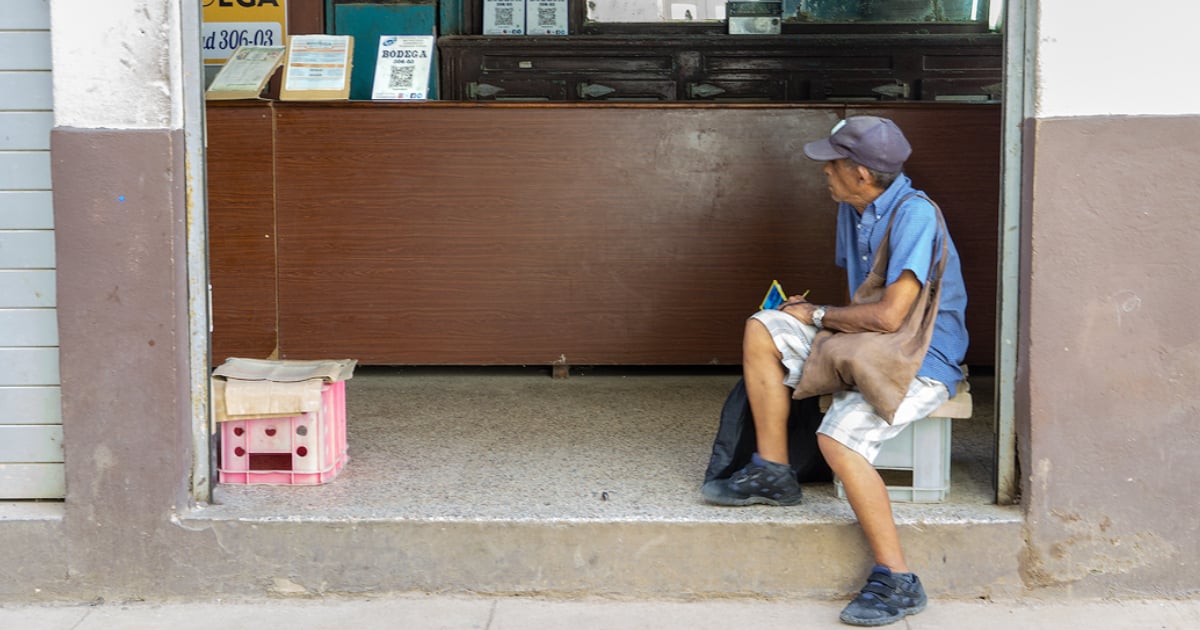More than 39% of Cuban retirees are receiving the bare minimum in pension payments. While the percentage alone is disheartening, translating it into real numbers paints an even bleaker picture. Of the 1.7 million beneficiaries under Social Security—which includes retirement, maternity protection, and partial disability—four out of ten retirees subsist on a mere 1,528 pesos monthly (approximately $4.70 USD at the informal exchange rate this week). To put this into perspective, the minimum wage in Cuba, set at 2,100 pesos, was equivalent to just two kilograms of chicken as of last May. A retiree's pension wouldn’t even cover the cost of one kilogram of powdered milk, priced at 1,800 pesos five months ago.
As a direct consequence, an increasing number of elderly individuals can be seen scavenging through garbage in Havana or collecting recyclable materials to scrape together enough money to make ends meet. This dire situation was confirmed by Virginia Marlene García Reyes, the General Director of Social Security at the Ministry of Labor and Social Security, through state media. She noted that the government allocates 40 million pesos for pensions despite inflation stubbornly remaining above 30% in 2023.
The Burden of Decentralization
Pensioners have voiced serious concerns following Miguel Díaz-Canel's government's announcement in September about dismantling the National Institute of Social Security. The move is ostensibly to decentralize the service, transferring responsibilities to local municipalities and provinces. Official narratives claim that this step aims to "streamline the state apparatus," yet in reality, it shifts the burden to local regions, leaving that 39% of retirees with minimal income at greater risk of slipping into extreme poverty.
The situation is especially dire for those without family abroad to send dollars, making it near impossible to afford a balanced diet in the twilight of their lives. They are left to rely solely on what is available through state-subsidized stores. In October, essentials like coffee, oil, beans, and toothpaste were unavailable. Even state-controlled media describes the distribution of subsidized food as occurring within a "complex landscape."
Government Responses Fall Flat
Despite official assurances, trust in the government's proclamations that "this measure will not leave the population unprotected" is dwindling. The claim that Social Security remains a "conquest" they wish to preserve rings hollow as no concrete measures have been taken. García Reyes euphemistically states, "We are working to improve this situation, although current circumstances prevent immediate changes," yet offers no specifics on what improvements are being pursued.
Continuing to offload responsibility to local governments, the official advises those facing financial difficulties due to insufficient income, like the 39% receiving 1,528 pesos monthly, to seek assistance from local labor departments. However, she fails to specify what criteria must be met to receive such aid, in a nation where 89% of the population lives in extreme poverty.
Impact of Economic Reforms
In December 2020, the Cuban government set the minimum wage at 2,100 Cuban pesos (CUP), roughly $87 USD at the proposed exchange rate of 24 to 1, with pensions ranging from 1,528 ($64) to 1,733 CUP ($72), according to a Ministry of Labor and Social Security resolution published in the Official Gazette. At the time, CiberCuba warned that the impact on citizens would hinge on inflation levels amid the disastrous monetary unification process. Even Díaz-Canel admitted the need to "rectify the reordering."
The government's alteration of the pension calculation method for age and total disability has sparked confusion and dissatisfaction among retirees, who lament the precarious conditions imposed on them. In response, the government has proposed a solution: retirees returning to work. An update to the Social Security Law now permits pensioners to re-enter the workforce, allowing them to collect both a pension and a salary concurrently.
In June, the regime acknowledged that inflation is rampant and that the economic situation "remains very tense," as "prices continue to rise, albeit at a slower pace." The struggle persists.
